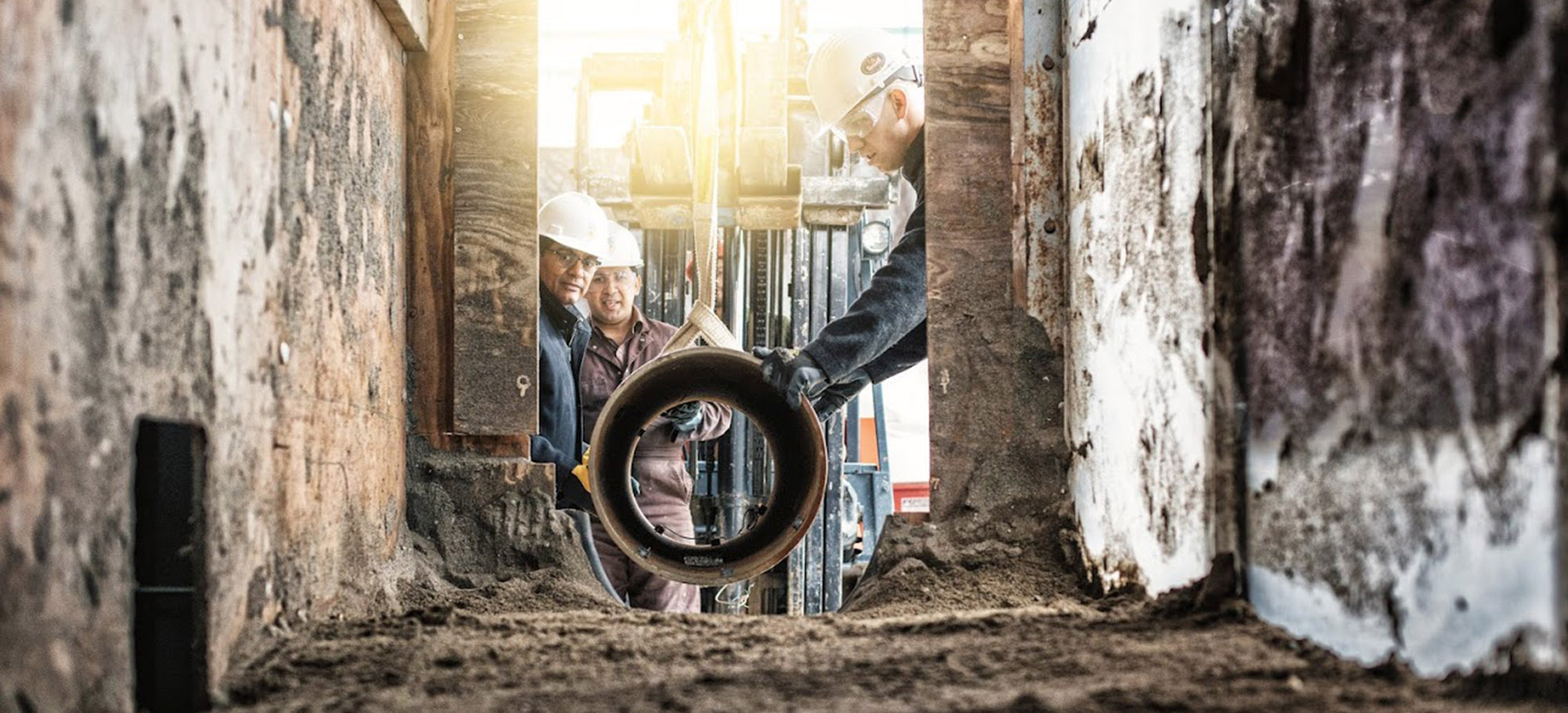Wednesday, June 14, 2017 | By Lindsay Cashin
The Pipeline Integrity Institute (PII), co-directed by Civil professor Dharma Wijewickreme, is maintaining research momentum with a fresh injection of funding to further knowledge and seek new developments in soil-pipe interaction, corrosion, and pipeline materials. The main goals of the PII are to contribute to the pipeline sector through conducting research to enhance the safety and integrity of pipelines, disseminating impartial, factual information related to the field, and teaching and training future engineers.
While significant research has been underway to study the performance of buried pipelines in commonly encountered soils, there is more to be accomplished with respect to the understanding of the way the pipelines interact with naturally occurring muskeg soils. Muskeg covers over 1.5 million square kilometres of the Canadian landscape, including regions such as northern Alberta and BC, which are sites for much pipeline activity. Muskeg material is soft in terms of stiffness and weak in strength, and due to a number of physical reasons, pipelines buried in muskeg soils can be subject to potential movements relative to the surrounding soil. In turn, engineers need to pay increased attention to the design of pipelines located in those soils. The PII has commenced work on this topic with the aim of understanding how muskeg soil-pipe interactions occur under these conditions, and in turn, allowing engineers to arrive at optimal design and maintenance actions. “The high-level idea,” Professor Wijewickreme says, “is to protect the pipelines and minimize the risk of damage to buried pipelines from ground movement.”
The Institute has also launched research programs to advance pipeline materials technology through a program aimed at performance improvements of field joint coatings and internal coatings. Furthermore, new methods to assess and quantify external coating performance are being developed.
PII receives support from the pipeline sector, which is further augmented by the matching funding of over seven hundred thousand recently awarded by the Natural Sciences and Engineering Research Council (NSERC), Canada’s national government research agency. The NSERC funds will be used in direct support of the work undertaken for the two research topics described above. The Institute is interested in proactively addressing other engineering challenges related to the sector by engaging in future collaborations with industry, government, and the public as appropriate.
Photo: Soil-Pipeline Physical Modeling at the UBC ASPIReTM Facility
